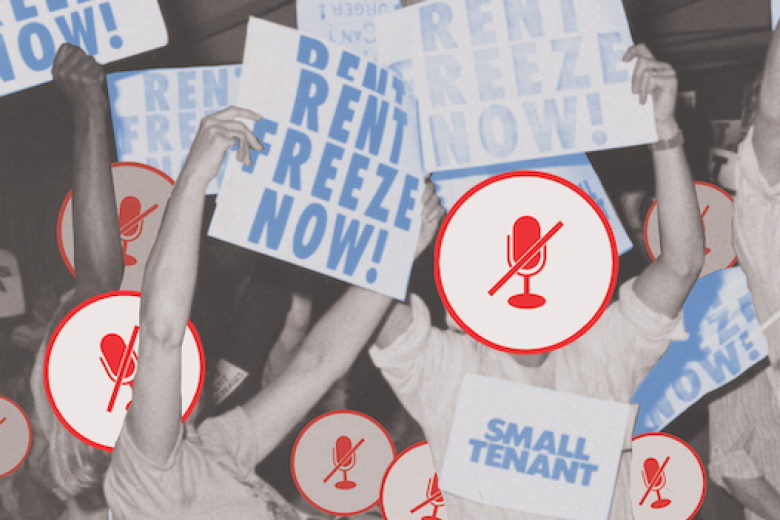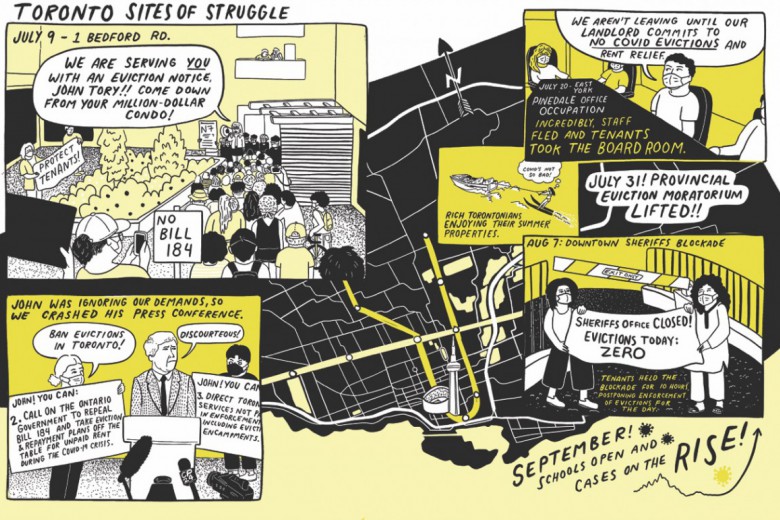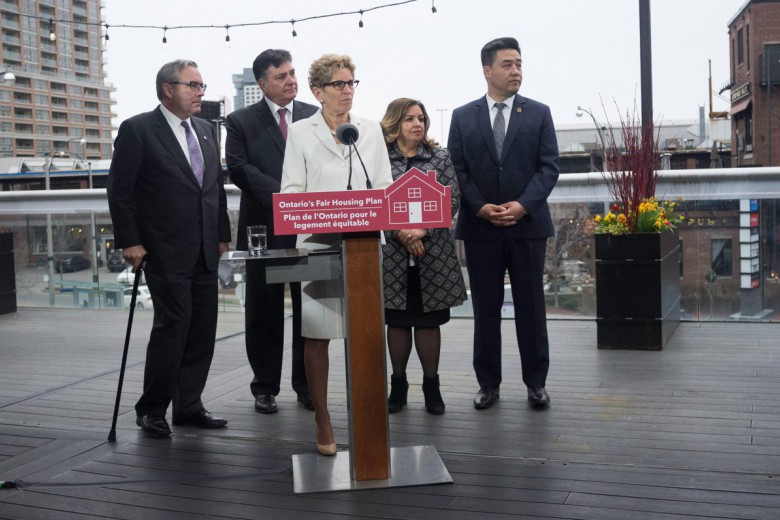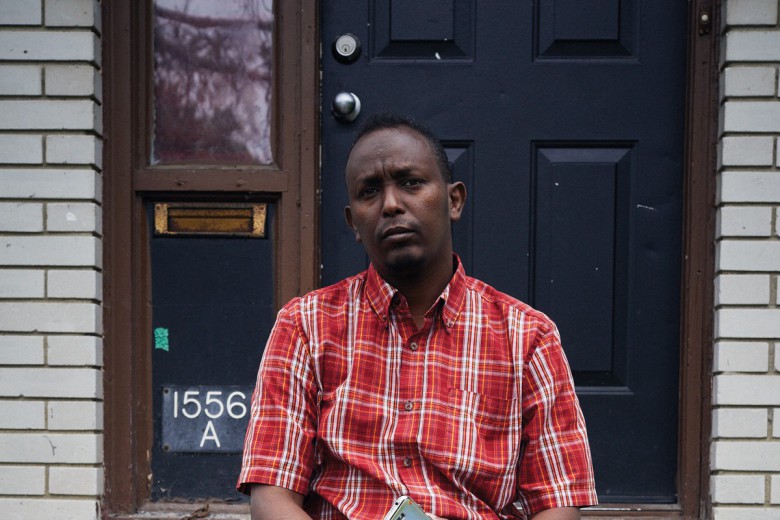When the pandemic started and I travelled to Toronto to be with my parents and my partner, I took to anxiously pacing around downtown. In some neighbourhoods, every street light and power pole for blocks was covered in posters telling tenants to “Keep your rent – you may need it.” Those posters were drawn by Paterson Hodgson, an artist and organizer with a new tenant group called Keep Your Rent. As COVID fanned the flames of Toronto’s preexisting housing crisis, Hodgson’s posters were a reminder that, all around me, there were people fighting for the soul of the city I grew up in.
I’m so thrilled to share with you this issue’s cover story – a six-page comic in which Hodgson reflects on the organizing behind Keep Your Rent. It’s drawn in their distinctive style, one that’s become the face of the struggle against evictions in Toronto. But since Hodgson started working on the comic a few months ago, so much has changed.
If they’re “a day late or a dollar short,” adjudicators remind tenants, their landlord can get an automatic eviction order without a hearing.
In September, Ontario Premier Doug Ford lifted the province’s seven-month ban on evictions. Back in Regina in November, I watched the Keep Your Rent Twitter account live-tweeting from the online Landlord and Tenant Board (LTB) hearings. Nine or more eviction hearings are scheduled in a single two-hour block – what one LTB member called an “eviction blitz.” Hearings can last for as little as 60 seconds – just long enough to plunge someone into crushing debt, or tell a family they’ll be homeless by the new year. Hearings proceed even when tenants don’t show up – sometimes because they can’t get into the online hearing room due to technical difficulties, or because the notice was lost. In a tenant’s absence, the LTB can rule in favour of the landlord. When a tenant does show up, they’re often pressured into a repayment plan, sometimes forced to come up with thousands of dollars within a week. If they’re “a day late or a dollar short,” adjudicators remind tenants, their landlord can get an automatic eviction order without a hearing. Some of the LTB’s adjudicators, appointed by the Ford government, are associated with landlord-side law firms like Cohen Highley LLP. Some are ordering evictions of Toronto tenants from the other side of the province.
At the same time as people are being made homeless by the LTB and the weather grows colder, Toronto has cracked down on grassroots efforts to provide aid to unhoused people. In November, the city issued a warning letter to carpenter Khaleel Seivwright, who’s been building tiny mobile shelters. The city has also issued warnings that the foam domes that the Encampment Support Network (ESN) is building for unhoused people living in parks are fire hazards or are blocking water line maintenance – trying to force encampment residents out of parks and into a new city shelter that ESN called “glass cages for people.” The city’s warning letters appeared just days before Toronto Mayor John Tory proclaimed it “National Housing Day” and lit up the Toronto sign red in celebration.
The same governments that tell us to stay home to help limit the spread of COVID-19 are the ones refusing to ban evictions.
It’s now been 10 months since the pandemic arrived in North America, and governments have continued to fail both tenants and unhoused people, shamelessly and relentlessly. The same governments that tell us to stay home to help limit the spread of COVID-19 are the ones refusing to ban evictions.
Though Toronto’s housing crisis hits (literally) close to home for me, the struggle for decent housing is not unique to Toronto – as Catherine Lafferty’s story about the Northwest Territories Housing Corporation shows, wherever colonialism and capitalism are allowed to erode the basic human right to shelter, people end up forced into unsafe and dehumanizing living conditions.
As Daniel Sarah Karasik points out in “Suppress the Virus Now!” “If the word heroic means anything, ordinary people physically blocking the eviction of their neighbours in a pandemic fits the bill.” To make it through this pandemic, we’ll need to stand together to demand shelter, safety, and dignity for all our neighbours – and if that fails, we need to provide it ourselves.







